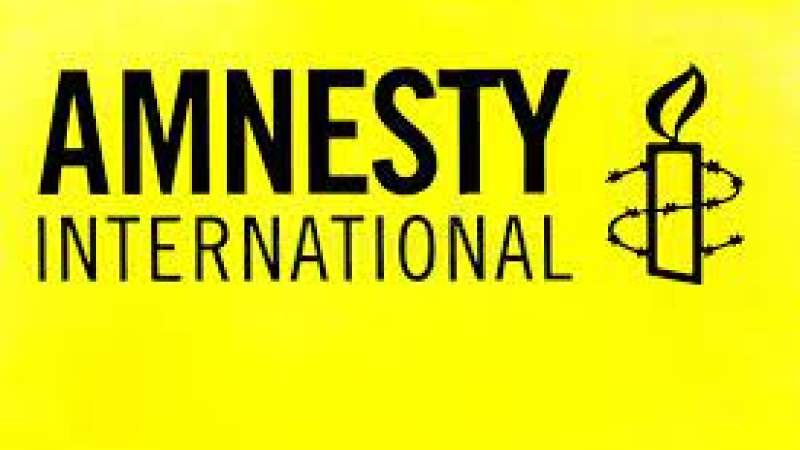Bahraini Government Continues to Commit Serious Human Rights Violations: Amnesty

News - Middle East: The Bahraini government continued to commit serious human rights violations, including torture and other ill-treatment as well as suppression of freedom of expression and assembly.
Official investigations of ill- treatment resulted in impunity for perpetrators. Migrant workers faced wage theft and, along with prisoners, violations of their right to health. The government violated the right to privacy through invasive surveillance, Amnesty International's annual report published on Tuesday.
In its special chapter on Bahrain revealed that the government of Manama, From late 2020, Bahrain provided free Covid-19 vaccines for nationals and legal residents, but the estimated 70,000 undocumented migrants were ineligible as they lacked a valid Bahraini ID. Prisoners, who became eligible for vaccination in February, complained that they were not told which vaccine was being offered so they could not make an informed medical decision.
A rolling outbreak of Covid-19 in Bahrain’s central prison at Jaw lasted from March to June. The interior ministry acknowledged three cases, but relatives of prisoners told Amnesty International in April that scores of prisoners were infected.
In June, Jaw inmate Husain Barakat died of complications after contracting Covid-19, despite having been vaccinated. His wife told Amnesty International that he had told her he could not breathe and that the guards had not heeded his requests to be transferred to hospital until he was too weak to walk.
As in past years, detainees and their families gave accounts of torture in state detention centres. In January, Sheikh Zuhair Jasim Abbas was finally allowed to call his family after five months’ incommunicado detention
in Jaw prison. He told relatives that during this period prison guards had tortured him, using methods including sleep deprivation, threatening that he was about to be executed, and beating with fists, feet and Hoses.
In April, Jaw prison authorities violently broke up a protest by prisoners following the death in custody of prisoner Abbas MalAllah.
Although some prisoners violently resisted guards’ efforts to force them back into their cells, the OHCHR found that the level of force used was excessive and unjustified. Prison guards struck detainees on the head with batons and in some cases beat detainees until they were bleeding severely.
The new Corrective Justice Law for Children, which came into effect in August, expands children’s procedural rights in court. However, child defendants’ rights were still not fully respected in practice.
In February, interior ministry investigators detained 16-year-old Sayed Hasan Ameen and separated him from his parents before interrogating him without a lawyer or relative present. The Office of Public Prosecution, acting in part based on this interrogation, included him as one of four children aged under 18 who were tried on charges of arson and throwing Molotov cocktails under the same procedural conditions as adults, in breach of Bahrain’s obligations under the Convention on the Rights of the Child.
In March, following public outcry, the court released the four children under an alternative sentence of attending a six-month rehabilitation programme.
Implementation of the right to a remedy remained inadequate and non-transparent. The Special Investigation Unit (SIU), a branch of the Office of Public Prosecution, stated that it had received reports of torture and other ill-treatment, but did not report how many.
It said it referred seven members of the security forces for criminal prosecution for unauthorized use of physical force, and three other members to a military court for mistreatment of civilians, but gave no details allowing the cases to be identified and did not fully report the outcomes. In the most detailed example, the SIU said a civilian court convicted three members of the security forces of unlawful use of force and gave them “sentences that ranged from jail time to a fine”.
Migrant workers’ limited rights under the kafala system, which ties legal status to remain in the country to the worker’s relationship with a sponsoring employer, made this group vulnerable to exploitation.
Lawyers Beyond Borders was preparing a class action case before the Indian judiciary to seek remuneration for hundreds of Indian nationals who had complained of non-payment of salaries and termination benefits when they were dismissed during Covid-19 lockdowns between March and October 2020 and forced to return home without their full pay. The Migrant Forum in Asia reported in June that they had received a group complaint of wage theft from 43 Nepali workers in Bahrain.
#Amnesty_International #Bahraini regime About 2 years
-
10:14
Palestinian Health Ministry: Qutaiba Shalabi and Mohammed Nazzal were martyred by Israeli gunfire in Burqin, west of Jenin, last night
10:13
Palestinian sources: 12 martyrs, dozens injured in ongoing Israeli assault on Jenin and its refugee camp in the occupied West Bank
10:13
Gaza Civil Defense: Thousands of missing victims remain under the debris of homes and buildings destroyed by Israeli forces
10:11
Gaza Civil Defense: 162 bodies have been recovered from the rubble in Gaza since the ceasefire began last Sunday
07:13
Mujahideen Movement: Who should be listed as terrorists are Netanyahu, his army, and his criminal government, charged by the ICC





